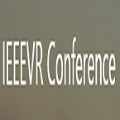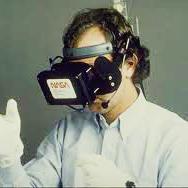Research examining older adults interactions with Virtual Reality (VR) and the impact of social VR experiences on outcomes such as social engagement has been limited, especially among older adults. This multi-site pilot study evaluated the feasibility and acceptability of a novel social virtual reality (VR) program that paired older adults from different geographic locations (New York City, Tallahassee, and Ithaca, N.Y) who engaged in virtual travel and productive engagement activities together. The sample included 36 individuals aged 60 and older, 25 percent of whom had cognitive impairment (CI). Older adults with and without CI reported high levels of engagement in the VR environment and perceived the social VR program to be enjoyable and usable. Perceived Spatial Presence was a central driver of the positive outcomes. Most also indicated a willingness to reconnect with their VR partner in the future. The data also identified important areas for improvement in the program, such as the use of more realistic and responsive avatars, controllers with larger controls, and more time for training. Overall, these findings suggest that VR social applications may foster social engagement among older adults.
翻译:对老年人与虚拟现实(VR)的互动以及社会虚拟现实(VR)对社会参与等结果的影响进行研究的研究有限,特别是在老年人中,这一多现场试点研究评价了新颖的社会虚拟现实(VR)方案的可行性和可接受性,该方案将来自不同地点(纽约市、塔拉哈西和伊萨卡)的老年人配对,他们一起参与虚拟旅行和生产性参与活动;抽样包括36名60岁和60岁以上的人,其中25%有认知障碍(CI);有或没有CI的老年人报告说,他们参与VR环境的程度很高,认为社会VR方案是可享受和可使用的; Perceived空间存在是积极结果的核心驱动因素;多数人还表示愿意在未来与其VR伙伴重新建立联系;数据还查明了方案需要改进的重要领域,例如使用更现实和反应更迅速的Avatars、控制较强的控制员以及培训时间更长。





